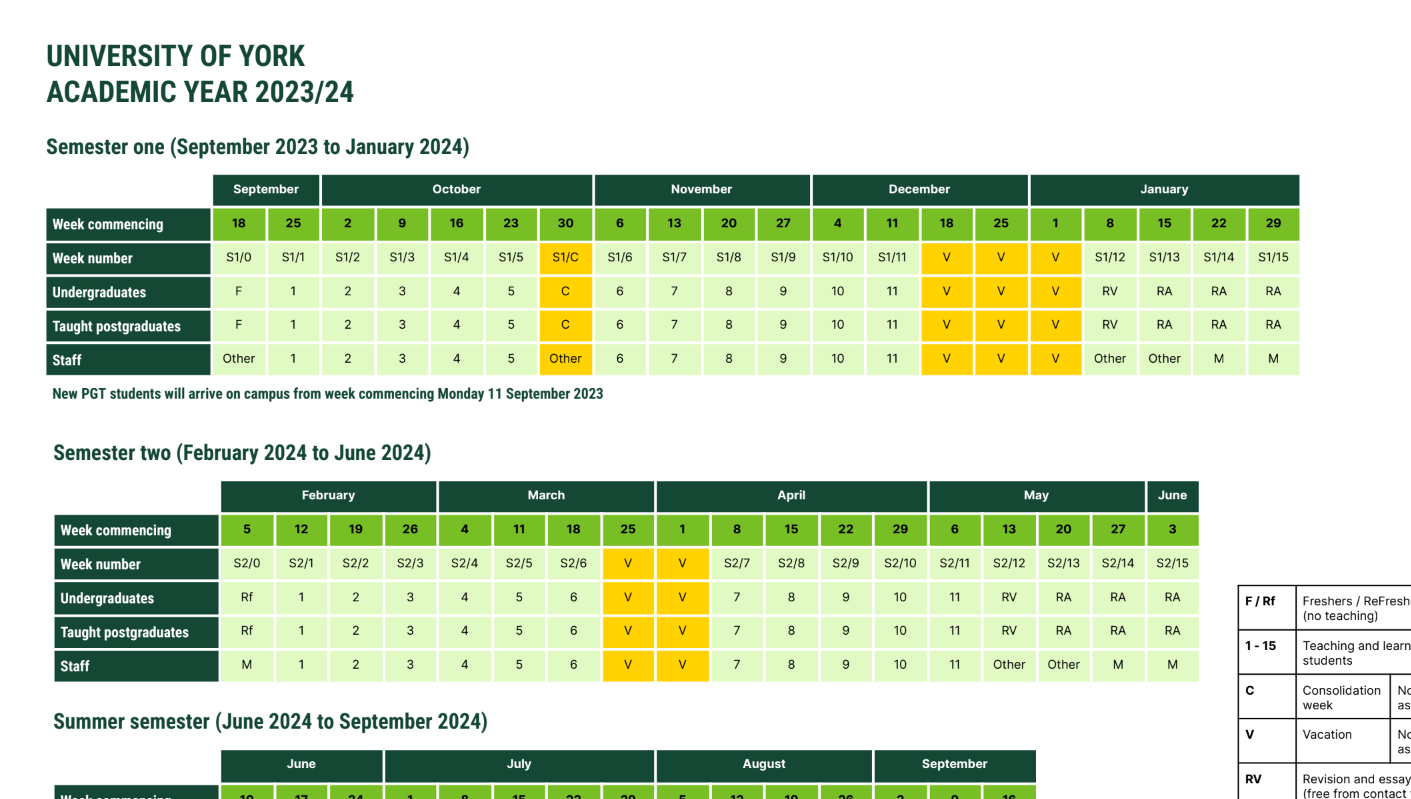Semesters
Calendars and guides
There is also a Google calendar for semesters, which includes:
- The semester number and week number. For example, Semester 1, Week 3 is S1/3.
- What students are doing that week, for example, Freshers, Teaching, Assessment or Vacation.
It can be accessed by everyone at the University, including students.
To add the calendar:
- Access the Google Calendar for Semesters
- The link will open Google calendars. Click the Add button
- The calendar should be listed under ‘Other calendars’ - you may need to refresh to find it in your list.
Term dates and semesters
Freshers’ week and Refreshers’ week
The academic year starts on the third Monday of September. This is a common start date among comparator universities which operate a semester pattern.
The first term includes a freshers’ week, 11 weeks of teaching, a mid-semester break (Consolidation week) and a three-week Christmas holiday.
Freshers’ week can be used for welcome activities by YUSU, the GSA and the University. Schools and departments can organise activities such as induction and pastoral supervision, but teaching will not commence this week.
The second term starts in January with a revision and assessment period. Semester 2 then starts with a Refreshers’ week. This is to allow students to have a break between assessments and teaching, and to enable staff to have more time dedicated to marking.
Consolidation week
In Semester 1 there is a common, designated Consolidation week for taught students. This break is designed to support staff and student wellbeing by avoiding a long period of uninterrupted teaching.
There will be no scheduled teaching this week and you should not set students other learning or assessment activities. Additional consolidation weeks at other times of the year should not be created.
Revision and essay writing week
Each semester contains a revision and essay writing week, free from contact time and scheduled assessments or deadlines. This allows a period of uninterrupted revision and coursework preparation following the Christmas break and the end of teaching in Semester 2. This does not imply that students only have a week to write essays.
Revision and assessment weeks
There are three revision and assessment weeks in each semester. During this time, departments set examinations and end-of-semester assessment deadlines. Students will be working on their assessments and revising.
You can use the assessment period for marking and other activities as well as supporting assessments. In addition, departments have the flexibility to set other assessment points within the semester (ie not all assessment has to take place at the end of the semester).
Marking weeks
Each semester ends with a dedicated marking week, free from teaching.
Vacation weeks (and late summer exams)
The winter vacation lasts three weeks and the spring vacation is two weeks. The spring vacation moves each year according to when Easter falls.
In the summer vacation period, exam boards take place in Week 4, followed by late summer assessment in Weeks 10 and 11.
Other weeks
This time is available for research, admin duties, PGR/PGT supervision, summer resits, teaching prep, student recruitment activities, vacation, etc.

